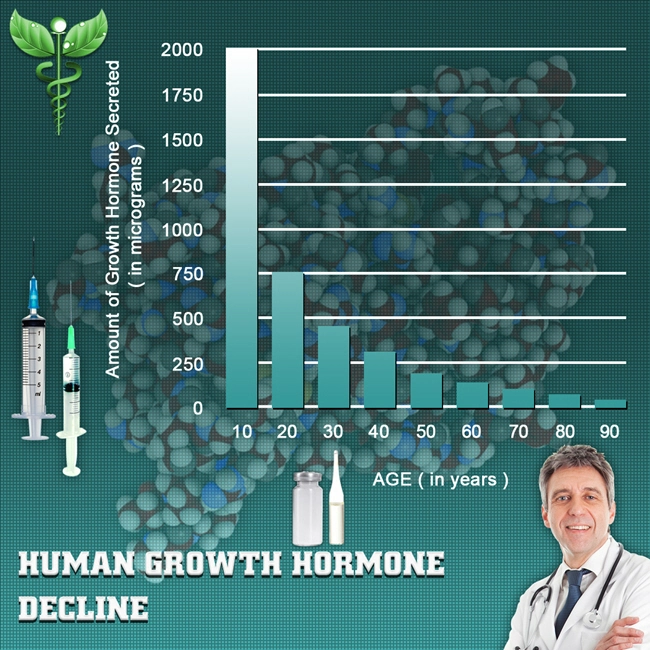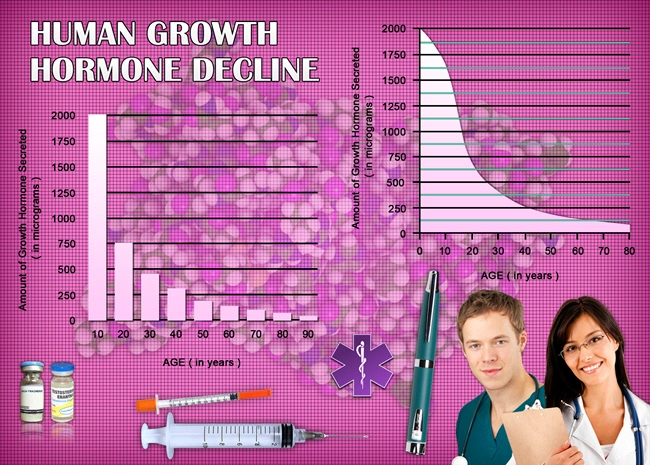
Introduction
Recent medical research has begun to explore the intricate connections between various bodily systems, revealing how seemingly unrelated health issues may be interlinked. One such connection that has garnered significant attention is the relationship between penile health and cardiovascular health. A groundbreaking study involving over 9,000 American males has provided compelling evidence that the health of the penis may serve as an indicator of cardiovascular wellness. This article delves into the findings of this large-scale study, examining the implications for men's health and the potential for early detection of cardiovascular diseases.
Study Overview and Methodology
The study, conducted across multiple medical centers in the United States, involved a diverse cohort of over 9,000 American males aged between 20 and 70. Participants underwent comprehensive cardiovascular assessments, including blood pressure measurements, lipid profiles, and electrocardiograms. Additionally, detailed questionnaires and clinical examinations were used to assess penile health, focusing on erectile function, penile sensitivity, and overall sexual health.
Key Findings: The Penile-Cardiovascular Connection
The results of the study revealed a significant correlation between penile health and cardiovascular health. Men with poorer penile health, particularly those experiencing erectile dysfunction (ED), were found to have a higher prevalence of cardiovascular risk factors such as hypertension, high cholesterol, and diabetes. The study also identified a strong association between the severity of ED and the extent of cardiovascular disease, suggesting that penile health could serve as an early warning sign for cardiovascular issues.
Mechanisms Behind the Connection
Several physiological mechanisms may explain the observed link between penile and cardiovascular health. The penis, like the heart, relies on healthy blood vessels for optimal function. Endothelial dysfunction, a condition where the inner lining of blood vessels fails to function properly, is a common factor in both ED and cardiovascular disease. Additionally, the study found that men with ED often had reduced nitric oxide levels, a key molecule involved in vasodilation and blood flow regulation, further supporting the vascular connection.
Implications for Men's Health
The findings of this study have significant implications for the health of American males. By recognizing the potential link between penile and cardiovascular health, healthcare providers can use assessments of penile function as a screening tool for cardiovascular risk. Early detection of ED could prompt further cardiovascular evaluations, potentially leading to earlier interventions and improved outcomes for men at risk of heart disease.
Promoting Penile and Cardiovascular Health
To maintain both penile and cardiovascular health, American men are encouraged to adopt a holistic approach to wellness. Regular exercise, a balanced diet rich in fruits, vegetables, and whole grains, and the avoidance of smoking and excessive alcohol consumption are crucial. Additionally, managing stress and maintaining a healthy weight can contribute to overall vascular health, benefiting both the heart and the penis.
Future Research Directions
While this study provides valuable insights into the penile-cardiovascular connection, further research is needed to fully understand the underlying mechanisms and to develop targeted interventions. Future studies could explore the role of specific lifestyle factors, genetic predispositions, and the effectiveness of various treatments in improving both penile and cardiovascular health.
Conclusion
The large-scale study involving over 9,000 American males has shed light on the significant relationship between penile health and cardiovascular wellness. By recognizing ED as a potential early indicator of cardiovascular disease, healthcare providers can take proactive steps to assess and manage cardiovascular risk in their male patients. As research in this field continues to evolve, American men can benefit from a more integrated approach to health, focusing on the interconnectedness of various bodily systems and the importance of early detection and prevention.
Contact Us Today For A Free Consultation
Dear Patient,
Once you have completing the above contact form, for security purposes and confirmation, please confirm your information by calling us.
Please call now: 1-800-380-5339.
Welcoming You To Our Clinic, Professor Tom Henderson.

- Managing Penile Skin Conditions: Symptoms, Treatments, and Prevention Strategies [Last Updated On: February 21st, 2025] [Originally Added On: February 21st, 2025]
- Understanding the Psychological Toll of Penile Health Issues: A Comprehensive Overview for American Males [Last Updated On: March 1st, 2025] [Originally Added On: February 28th, 2025]
- Advancements in Penile Prostheses: Enhancing ED Treatment and Patient Satisfaction [Last Updated On: March 17th, 2025] [Originally Added On: March 17th, 2025]
- Penile Trauma: Emergency Care, Long-Term Management, and Latest Advances in Penis Science [Last Updated On: March 18th, 2025] [Originally Added On: March 18th, 2025]
- Testosterone's Crucial Role in Penile Health and Function for American Males [Last Updated On: March 19th, 2025] [Originally Added On: March 19th, 2025]
- Penile Enlargement: Safety, Efficacy, and Methods for American Males [Last Updated On: March 19th, 2025] [Originally Added On: March 19th, 2025]
- Penile Nerve Blocks: Enhancing Urological Surgery and Pain Management for American Males [Last Updated On: March 19th, 2025] [Originally Added On: March 19th, 2025]
- Optimal Penile Hygiene: Practices for Health and Well-being in American Males [Last Updated On: March 19th, 2025] [Originally Added On: March 19th, 2025]
- Lifestyle Factors Impacting Penile Health: Diet, Exercise, and More for American Males [Last Updated On: March 20th, 2025] [Originally Added On: March 20th, 2025]
- Understanding and Managing Penile Ulcers in American Males: Causes, Diagnosis, and Treatment [Last Updated On: March 20th, 2025] [Originally Added On: March 20th, 2025]
- Obesity's Impact on Penile Function: Vascular, Hormonal, and Psychological Effects [Last Updated On: March 21st, 2025] [Originally Added On: March 21st, 2025]
- Spinal Cord Injuries and Penile Function: Impacts and Management for American Males [Last Updated On: March 21st, 2025] [Originally Added On: March 21st, 2025]
- Chemotherapy's Impact on Penile Health: Effects, Management, and Long-term Considerations [Last Updated On: March 22nd, 2025] [Originally Added On: March 22nd, 2025]
- Medications and Penile Function: Impacts on American Males' Health [Last Updated On: March 22nd, 2025] [Originally Added On: March 22nd, 2025]
- Genetics of Penile Development: Insights and Advances for American Males [Last Updated On: March 22nd, 2025] [Originally Added On: March 22nd, 2025]
- Penile Vascular Health: Understanding, Preventing, and Treating Vascular-Related ED [Last Updated On: March 22nd, 2025] [Originally Added On: March 22nd, 2025]
- Penile Biopsy: Essential Diagnostic Tool for Urological Health in American Males [Last Updated On: March 22nd, 2025] [Originally Added On: March 22nd, 2025]
- Penile Skin Grafts: Indications, Procedures, and Outcomes for American Males [Last Updated On: March 22nd, 2025] [Originally Added On: March 22nd, 2025]
- Dietary Impact on Penile Health: Antioxidants, Omega-3s, and Nitrates [Last Updated On: March 23rd, 2025] [Originally Added On: March 23rd, 2025]
- Managing Penile Allergies: Symptoms, Diagnosis, and Effective Strategies for American Males [Last Updated On: March 23rd, 2025] [Originally Added On: March 23rd, 2025]
- Penile Prosthetics: Effective Solution for Severe Erectile Dysfunction in American Males [Last Updated On: March 23rd, 2025] [Originally Added On: March 23rd, 2025]
- Penile Ultrasound: Diagnosing Sexual Dysfunction in American Males [Last Updated On: March 24th, 2025] [Originally Added On: March 24th, 2025]
- Penile Girth's Impact on Sexual Satisfaction: Insights for American Males [Last Updated On: March 24th, 2025] [Originally Added On: March 24th, 2025]
- Understanding Penile Numbness: Causes, Diagnosis, and Treatment Strategies [Last Updated On: March 24th, 2025] [Originally Added On: March 24th, 2025]
- Chronic Diseases and Penile Health: Impacts and Management for American Males [Last Updated On: March 24th, 2025] [Originally Added On: March 24th, 2025]
- Penile Warts: Causes, Symptoms, Treatment, and Prevention for American Males [Last Updated On: March 24th, 2025] [Originally Added On: March 24th, 2025]
- Penile MRI: Advancing Diagnosis and Treatment in Men's Health [Last Updated On: March 24th, 2025] [Originally Added On: March 24th, 2025]
- Understanding Penile Rash: Types, Causes, and Effective Treatments for American Men [Last Updated On: March 25th, 2025] [Originally Added On: March 25th, 2025]
- Understanding Penile Discharge: Causes, Symptoms, and Treatment for American Males [Last Updated On: March 25th, 2025] [Originally Added On: March 25th, 2025]
- Penile Reconstruction: Techniques, Outcomes, and Psychological Impact on American Males [Last Updated On: March 25th, 2025] [Originally Added On: March 25th, 2025]
- Penile Vein Anatomy, Function, and Common Disorders: A Comprehensive Overview [Last Updated On: March 25th, 2025] [Originally Added On: March 25th, 2025]
- Understanding and Managing Penile Sensory Neuropathy in American Males [Last Updated On: March 25th, 2025] [Originally Added On: March 25th, 2025]
- Hormonal Imbalances and Their Impact on Penile Health in American Males [Last Updated On: March 25th, 2025] [Originally Added On: March 25th, 2025]
- Understanding Penile Discoloration: Causes, Symptoms, and Treatment Options for American Males [Last Updated On: March 25th, 2025] [Originally Added On: March 25th, 2025]
- Neurological Disorders' Impact on Penile Function: Insights and Management Strategies [Last Updated On: March 26th, 2025] [Originally Added On: March 26th, 2025]
- Understanding Penile Lesions: Types, Causes, and Medical Interventions for American Males [Last Updated On: March 26th, 2025] [Originally Added On: March 26th, 2025]
- Penile Lymphatic System: Functions, Disorders, and Health Management [Last Updated On: March 26th, 2025] [Originally Added On: March 26th, 2025]
- Understanding and Managing Penile Pain: Causes, Diagnosis, and Treatment Strategies [Last Updated On: March 26th, 2025] [Originally Added On: March 26th, 2025]
- Penile Blood Tests: A Vital Tool for Diagnosing Systemic Health Issues in Men [Last Updated On: March 26th, 2025] [Originally Added On: March 26th, 2025]
- Penile Piercings: Health Risks, Types, and Medical Advice for American Males [Last Updated On: March 26th, 2025] [Originally Added On: March 26th, 2025]
- Penile Arteries and Erection Health: A Comprehensive Guide for American Males [Last Updated On: March 26th, 2025] [Originally Added On: March 26th, 2025]
- Understanding Penile Swelling: Causes, Diagnosis, and Management for American Males [Last Updated On: March 27th, 2025] [Originally Added On: March 27th, 2025]
- Exploring Penile Sensitivity: Impact on Sexual Health and Function in American Males [Last Updated On: March 27th, 2025] [Originally Added On: March 27th, 2025]
- Understanding Penile Bleeding: Causes, Symptoms, and Emergency Care for American Males [Last Updated On: March 27th, 2025] [Originally Added On: March 27th, 2025]
- Penile Nerve Anatomy: Impact on Sexual Health and Function in American Men [Last Updated On: March 27th, 2025] [Originally Added On: March 27th, 2025]
- Penile Injuries: Types, Impact on Sexual Function, and Importance of Timely Treatment [Last Updated On: March 27th, 2025] [Originally Added On: March 27th, 2025]
- Radiation Therapy's Impact on Penile Health: Effects, Management, and Future Research [Last Updated On: March 27th, 2025] [Originally Added On: March 27th, 2025]
- Understanding Penile Itching: Causes, Symptoms, and Effective Treatments [Last Updated On: March 28th, 2025] [Originally Added On: March 28th, 2025]
- Understanding Penile Lumps: Types, Causes, and Management for American Males [Last Updated On: March 29th, 2025] [Originally Added On: March 29th, 2025]
- Penile Health and Fertility: Insights and Management for American Males [Last Updated On: March 29th, 2025] [Originally Added On: March 29th, 2025]
- Penile Sores: Causes, Symptoms, and Medical Interventions for American Males [Last Updated On: March 30th, 2025] [Originally Added On: March 30th, 2025]
- Understanding Penile Edema: Causes, Diagnosis, and Treatment Strategies for American Males [Last Updated On: March 30th, 2025] [Originally Added On: March 30th, 2025]
- Penile Health and Overall Well-being: Insights and Strategies for American Males [Last Updated On: March 30th, 2025] [Originally Added On: March 30th, 2025]
- Understanding and Treating Penile Redness: Causes, Symptoms, and Effective Solutions [Last Updated On: April 1st, 2025] [Originally Added On: April 1st, 2025]
- Understanding Penile Dermatitis: Symptoms, Causes, and Treatment for American Males [Last Updated On: April 2nd, 2025] [Originally Added On: April 2nd, 2025]
- Penile Health and Mental Well-being: Insights for American Males [Last Updated On: April 4th, 2025] [Originally Added On: April 4th, 2025]
- Penile Health and Partner Satisfaction: Insights for American Males [Last Updated On: April 5th, 2025] [Originally Added On: April 5th, 2025]
- Understanding Penile Blisters: Causes, Symptoms, and Treatment Options for Men [Last Updated On: April 7th, 2025] [Originally Added On: April 7th, 2025]
- Causes, Diagnosis, and Management of Penile Burning in American Males [Last Updated On: April 8th, 2025] [Originally Added On: April 8th, 2025]
- Penile Health and STI Prevention: A Comprehensive Guide for American Males [Last Updated On: April 8th, 2025] [Originally Added On: April 8th, 2025]
- Understanding Penile and Prostate Health: A Comprehensive Guide for American Males [Last Updated On: April 8th, 2025] [Originally Added On: April 8th, 2025]
- Penile Health Impact on Urinary Function: Insights for American Males [Last Updated On: April 8th, 2025] [Originally Added On: April 8th, 2025]
- Managing Penile Sensitivity Disorders: Causes, Diagnosis, and Treatment Options [Last Updated On: April 9th, 2025] [Originally Added On: April 9th, 2025]
- Understanding and Managing Penile Dryness: Causes, Symptoms, and Effective Treatments [Last Updated On: April 9th, 2025] [Originally Added On: April 9th, 2025]
- Understanding Penile Foreskin Health: Causes, Symptoms, and Care [Last Updated On: April 9th, 2025] [Originally Added On: April 9th, 2025]
- Penile Health as Cardiovascular Indicator: Study Insights for American Males [Last Updated On: April 11th, 2025] [Originally Added On: April 11th, 2025]
- Penile Health: Impact on Reproductive Wellness and Integrated Care Strategies [Last Updated On: April 12th, 2025] [Originally Added On: April 12th, 2025]
- Managing Penile Odor: Causes, Symptoms, and Effective Treatment Strategies for Men [Last Updated On: April 12th, 2025] [Originally Added On: April 12th, 2025]
- Penile Health and Hormonal Balance: A Comprehensive Guide for American Men [Last Updated On: April 13th, 2025] [Originally Added On: April 13th, 2025]
- Penile Health and Immune System: A Comprehensive Guide for American Men [Last Updated On: April 15th, 2025] [Originally Added On: April 15th, 2025]
- Understanding Penile Irritation: Causes, Symptoms, and Dermatological Treatments for American Men [Last Updated On: April 15th, 2025] [Originally Added On: April 15th, 2025]
- Aging and Penile Sensitivity: Understanding Changes and Maintaining Health [Last Updated On: April 15th, 2025] [Originally Added On: April 15th, 2025]
- Penile and Musculoskeletal Health: Causes, Symptoms, Treatments, and Holistic Approaches [Last Updated On: April 16th, 2025] [Originally Added On: April 16th, 2025]
- Penile Health and Sexual Function: Medical Insights and Holistic Management Strategies [Last Updated On: April 16th, 2025] [Originally Added On: April 16th, 2025]
- Exploring the Link Between Penile and Respiratory Health in American Males [Last Updated On: April 18th, 2025] [Originally Added On: April 18th, 2025]
- Penile Health and Endocrine Disorders: Causes, Symptoms, and Management Strategies [Last Updated On: April 18th, 2025] [Originally Added On: April 18th, 2025]
- Penile Health and Kidney Function: Vital Connections and Preventive Measures for Men [Last Updated On: April 19th, 2025] [Originally Added On: April 19th, 2025]
- Neurological Health's Impact on Penile Sensitivity: Insights for American Males [Last Updated On: April 19th, 2025] [Originally Added On: April 19th, 2025]
- Exploring the Link Between Penile and Gastrointestinal Health in American Males [Last Updated On: April 19th, 2025] [Originally Added On: April 19th, 2025]
- Understanding Penile Sensitivity: Dermatological, Neurological, and Vascular Factors for American Males [Last Updated On: April 21st, 2025] [Originally Added On: April 21st, 2025]








